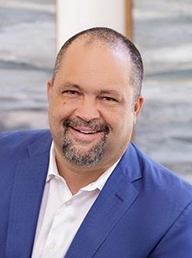
By Ben Jealous
More than one million Americans told the Environmental Protection Agency (EPA) last week that they aren’t willing to wait any longer.
Their comments insisting that EPA move forward quickly to cut carbon pollution from new and existing coal and natural gas-burning power plants were delivered in person in Washington by a coalition of a dozen national environment, environmental justice, and public health groups. It reportedly is the most public responses to a proposed environmental rule since President Biden took office.
Their impatience is understandable. Power plants are the second largest source of climate-damaging greenhouse gases in the United States after cars, trucks, and planes. The United Nations Intergovernmental Panel on Climate Change reported nearly six months ago that at the current global pace by 2030 we will blow through the threshold for carbon pollution that will keep the planet livable.
Unless we act fast and significantly, we are the allegorical frog in slowly warming water, except we are turning up the heat on ourselves. In just three months since EPA proposed the tougher carbon regulations, we’ve experienced wildfires across North America, flooding across the northeastern U.S., and in July the single hottest month in recorded human history. These are the predictable consequences of manmade climate change, and unless we act with urgency, they only will get worse.
President Biden promised to reduce U.S. carbon pollution by half by 2030. We won’t reach that without even more ambitious rules than EPA has proposed, including more demand for community outreach by state regulators around pollution from existing plants.
Not surprisingly, the groups representing electric utilities offered their typical knee-jerk responses to higher standards to curb pollution – too much, too fast, too risky. It sounded a lot like the complaints nearly a decade ago when the Obama administration unveiled its Clean Power Plan, and plants have met those targets since.
It begs the question of why an industry that reportedly saw $14 billion in profits last year, carried out $11 billion in stock buybacks, and asked for 14 percent more rate increases from consumers compared to 2021 isn’t doing more to create the technology it needs to keep from slowly baking the planet. And why it’s building enough new natural gas-burning plants to power 12.8 million households. Those plants could still be open in 2050 when even power companies say they’ll be at net zero carbon pollution and as the cost of producing electricity through renewable sources is slipping below the cost for generating it burning fossil fuels.
The timing of their objections to the new EPA rules is ironic. We’re also marking the one-year anniversary of the historic package that the President and Congress crafted directing more than $350 billion in federal support to clean energy and good jobs.
Back then, the Edison Electric Institute, which represents the nation’s private power companies, said the tax credits and incentives included would “deliver a clean energy future and a carbon-free economy faster.” The package would put the U.S “at the forefront of global efforts to drive down carbon emissions” and provide “much-needed certainty to America’s electric companies over the next decade.” The same companies have gone from applause to hand wringing in 12 months.
When it comes to what must be done now to avert unrecoverable damage to the climate, ignorance isn’t bliss – it’s an impending catastrophe. President Biden through EPA must face up to a grave obligation by seizing every opportunity to make good on his 2030 pledge.
The word protection in EPA’s name refers to people and the planet, not polluters. That must start now with stringent standards ensured by rigorous monitoring and enforcement mechanisms and reinforced by meaningful community voices in the conversation.
Ben Jealous is executive director of the Sierra Club, the nation’s largest and most influential grassroots environmental organization. He is a professor of practice at the University of Pennsylvania and author of “Never Forget Our People Were Always Free,” published in January.


Be the first to comment